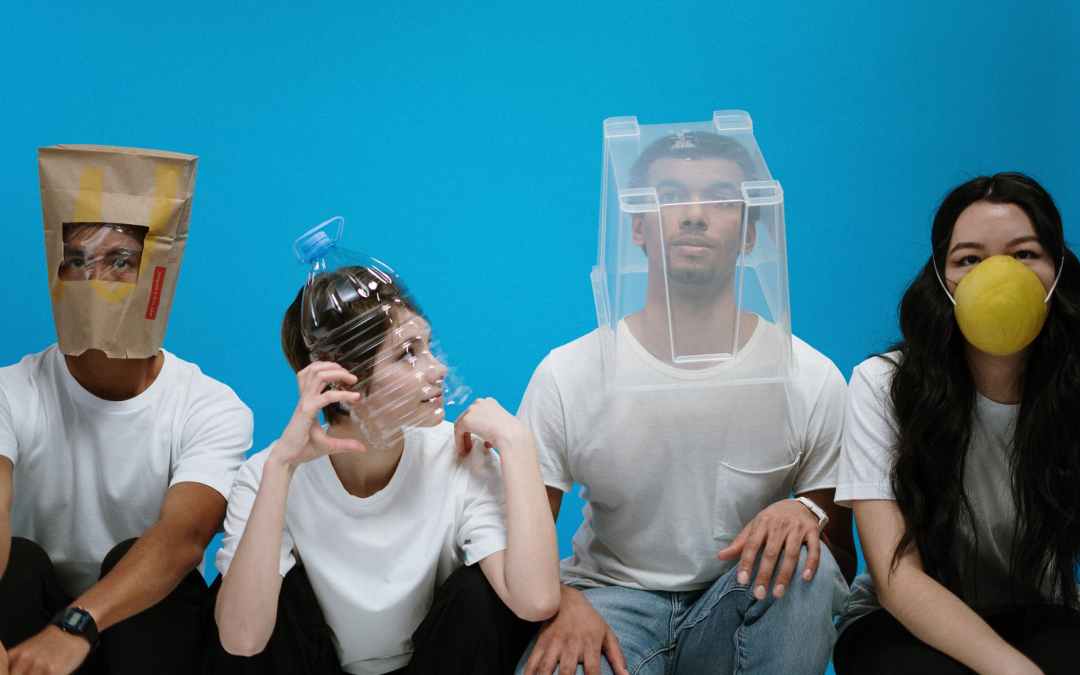


There are a lot of different emotions we experience as human beings. They range in breadth and vary from small to overwhelmingly big. Some smaller feelings might be emotions like being comfortable and content, or feeling bothered, uneasy, or down. These smaller feelings feel manageable at their worst. “I can handle that” is our subconscious internal dialogue. But what happens when we experience those bigger, scarier emotions? What happens when a feeling down turns to despair, and unease plummets into full-on panic? The Coronavirus triggers many of us to have this exact reaction.
With both of our Houston and Tyler offices being in areas where school has closed, we have to face a strong possibility. A possibility that for many of us, the next few weeks could be a series of various emotions that we don’t know what to do with. Some of these feelings could be described as triggering, and feeling triggered is not a fun experience. It tells your brain “this is new, and you’re not prepared” or often it says, “you’re going crazy!” making you feel all the more like crawling into a hole, like needing to frantically plan all the things, or anywhere in between.
So what is a trigger? Where does it come from? And how do we quickly bounce back from being overwhelmed? Learning these skills can help you not only navigate the chaos of the coronavirus triggers, but also help you find peace in any of the hard times you may face.
 One of the hardest parts of any crisis is often not just the crisis itself, but the impact it has on each of our minds. A crisis like the Coronavirus triggers what is known as an Amygdala Hijack (Goleman). This is where a normally high-functioning brain goes from focusing its energy in the logical part of the brain (prefrontal cortex) all the way to the back of the brain (amygdala). The amygdala is focused on one thing only: survive.
One of the hardest parts of any crisis is often not just the crisis itself, but the impact it has on each of our minds. A crisis like the Coronavirus triggers what is known as an Amygdala Hijack (Goleman). This is where a normally high-functioning brain goes from focusing its energy in the logical part of the brain (prefrontal cortex) all the way to the back of the brain (amygdala). The amygdala is focused on one thing only: survive.
Many of us have heard of a fight-flight-freeze response. This is the amygdala’s job: assess a scenario quickly and go on auto-pilot to keep you alive. All other parts of the brain essentially turn off, including emotions. This is one of the reasons why if anyone asks “how are you doing?” when you are triggered, it can actually increase your distress.
When triggered, our eyes search for the dangers. Who looks like they are coughing? Is there anyone that could be sick? We try to maintain the illusion of control, but reality is that we have little control at all. Your mind starts racing, your eyes move quickly, but you are not really thinking. In fact, usually only two basic forms of questions are rapidly repeated:

This is part of the reason why we are doing things we would not normally do like making runs on grocery stores or spray down our loved ones with disinfectant before they come inside. These are not logical steps, or healthy ones. They are attempts to feel in control. We see these reactions viscerally in our kids, but we as adults are experiencing the same flood of emotions.
When your body is experiencing an Amygdala Hijack, your brain will try to maintain this cycle of fear by expanding the worries from yourself to your immediate family such as our spouse or our kids, then your extended family, then your friends, and so on. This can continue indefinitely, and only perpetuates your own panic. Here is an article on helping your children calm down from fight-flight-freeze, but you can’t give your children what you do not have. If you are not peaceful, you cannot help your children come down from their own triggers. So instead, start with calming only yourself. Try a couple of these basic coping skills:

You have a lot of things going on right now. You are trying to juggle transitioning to quarantined home life, keeping your kids calm now that they are home during work hours, caring for other people in your life and checking in on them, worrying about others whom you love who you can’t be with physically at this time… and a whole host of other things you were already dealing with before all of this. You’re wanting to care for other people but you’re not sure how.
Easier said than done, it’s important to be kind and gentle with yourself about experiencing coronavirus triggers. You are not alone, and experiencing these reactions during a pandemic is normal and healthy. This is something I often remind my clients (and myself), especially during difficult times. And I would argue that this is especially crucial now. It’s not so easy to do sometimes, but while you’re at home you can start practicing. After all, it is much harder to care for others if you are personally running on empty.

Practice compassion for yourself and for what you are feeling – What would it look like to instead of beating yourself up for feeling a certain way, being kind to yourself instead?